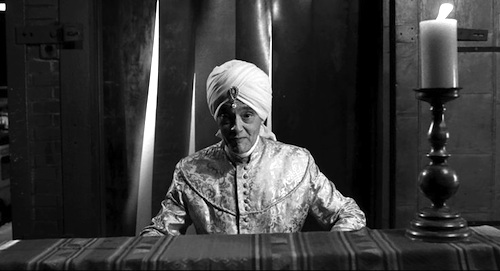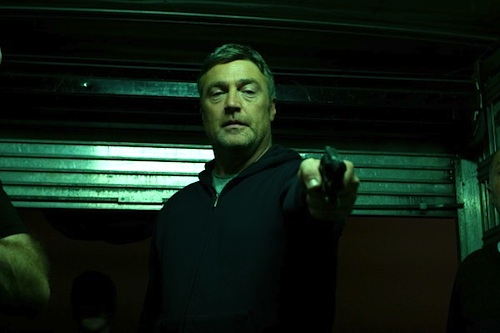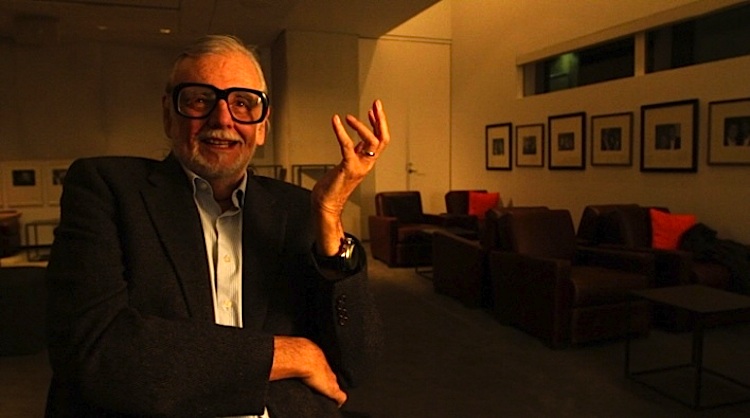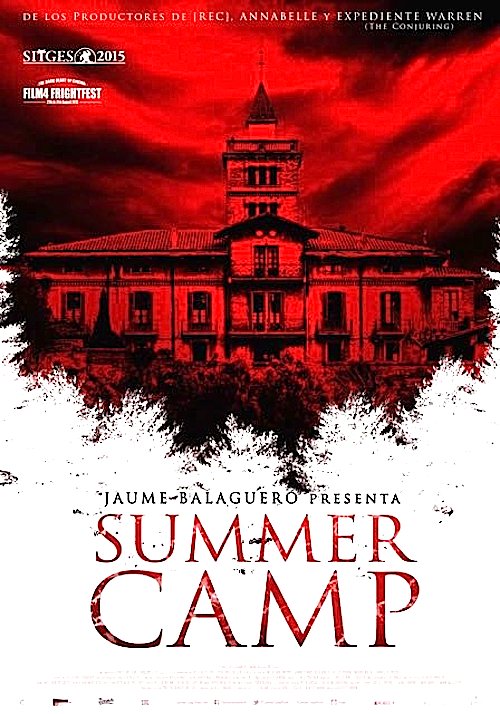 By Joe Bendel. Before the kids arrive, Antonio always has the counselors at Camp El Buho perform trust exercises, so he basically deserves to die. He is also a real cad, but he is not the only staffer hoping for extracurricular hook-ups. Unfortunately, they instead get a major dose of pathogen-based infection horror in Alberto Marini’s Summer Camp, which screens as part of the Film Society of Lincoln Center’s Scary Movies 9.
By Joe Bendel. Before the kids arrive, Antonio always has the counselors at Camp El Buho perform trust exercises, so he basically deserves to die. He is also a real cad, but he is not the only staffer hoping for extracurricular hook-ups. Unfortunately, they instead get a major dose of pathogen-based infection horror in Alberto Marini’s Summer Camp, which screens as part of the Film Society of Lincoln Center’s Scary Movies 9.
El Buho is an English immersion camp, so Antonio only hires native speakers. That means we are off the hook for subtitles. Both he and Will have eyes for the adventurous Michelle and Christy, the spoiled princess. Unfortunately, one of them goes stark raving nuts before they can put the moves on anyone. And then there were three.
However, they learn too late the ill effects of the infection are only temporary. In fact, this becomes a major source of confusion for the surviving trio, as each counselor goes through periods of enraged zombie-like infection and subsequent recovery, forcing them to constantly shift their alliances, usually at the most awkward times. Frankly, this macabre partner swapping gets down right inspired, as Marini maniacally cranks up the paranoia.
Previously known for writing Sleep Tight and co-producing films in the [REC] franchise, Marini shows wicked talent for helming outrageous bedlam in his feature directorial debut. Early on, he pulls off a devilish bit of misdirection and he keeps the panic-driven narrative hurtling along at warp speed. He has an instinctive sense of when to tease and when to pay off prior foreshadowing. He and co-screenwriter Danielle Schleif have penned a delightfully slick and twisted narrative that pays homage to 1980s dead camper horror films, but gives the genre a series of new and fresh spins.
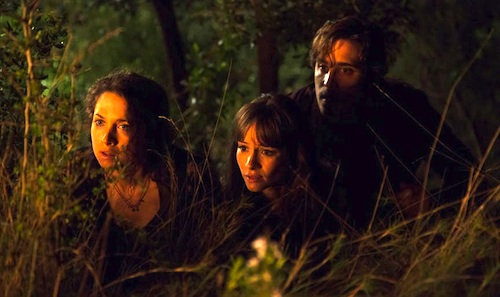
Arguably, the cast is not so much acting as they are running like mad or ferociously tearing each other apart. Still, Diego Boneta has his moments as his character, Will, takes one almighty beating. He also foams at the mouth quite well, as do Jocelin Donahue and Maiara Walsh. They are all well-served by the creepy old converted mansion that now serves as Camp El Buho.
It is hard to find fault with a film that suggests druggie squatters are major bad news (like they didn’t have enough problems already). Although it is almost entirely in English, Summer Camp might be the best Spanish horror film since the second [REC] installment. Gleefully dark and grisly, it is the sort of film that reminds fans why they dug the genre in the first place. Highly recommended for midnight movie patrons, Summer Camp screens this coming Monday (11/2) at the Walter Reade, as part of Scary Movies 9.
LFM GRADE: A-
Posted on October 29th, 2015 at 10:30pm.
